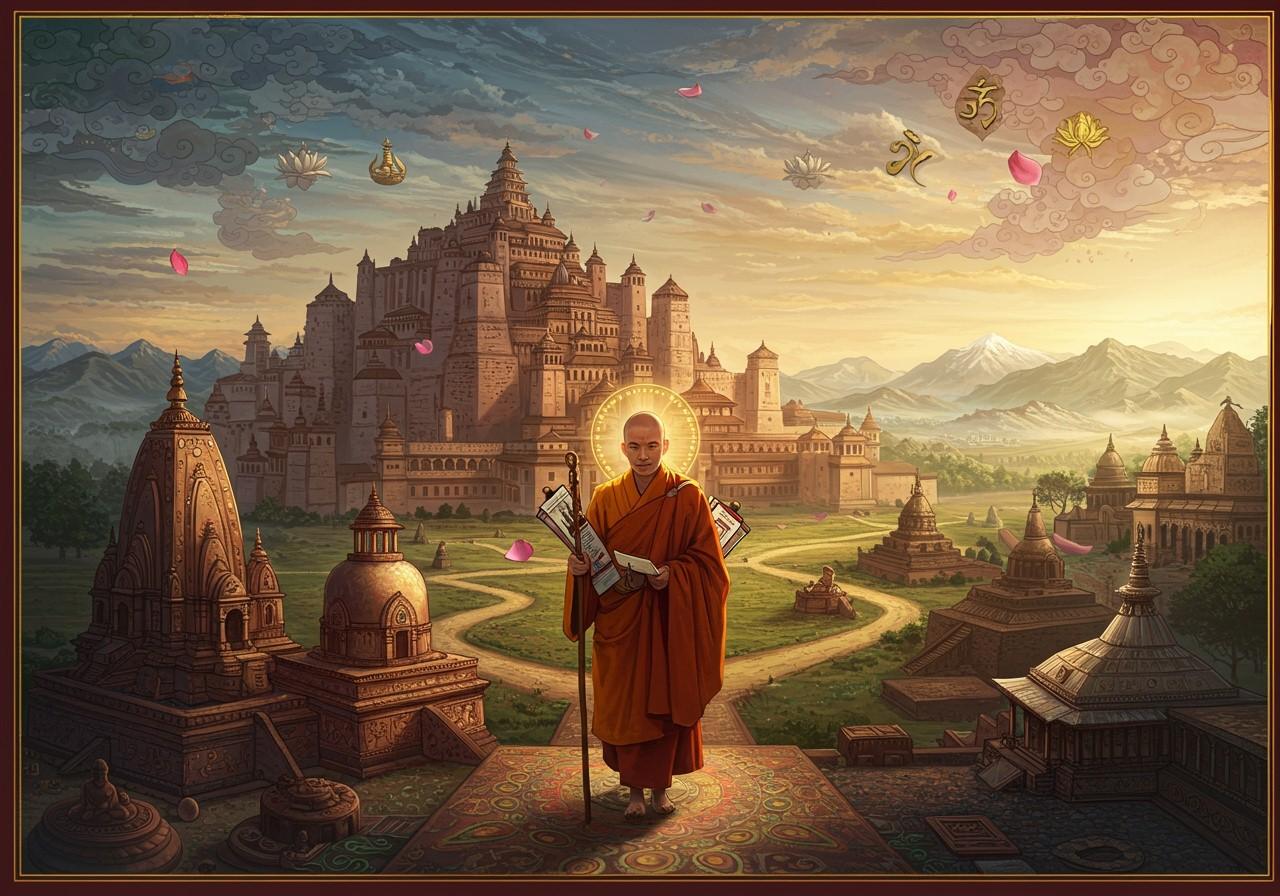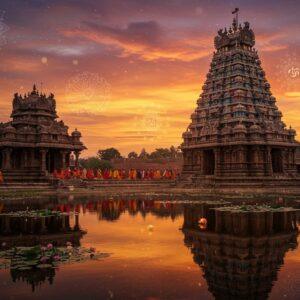
Xuanzang, a revered Buddhist monk, is known for his extraordinary 17-year journey to India in the 7th century CE. This pilgrimage significantly impacted the cultural and religious exchange between China and India. This blog delves into Xuanzang’s motivations, experiences, and lasting contributions to Buddhism and historical scholarship.
Who is Xuanzang?
Xuanzang, also known as Hsüan-tsang, was born in 602 AD in Henan Province, China. He embarked on his pilgrimage to India to acquire original Buddhist scriptures and deepen his understanding of Buddhist teachings. Driven by a thirst for authentic knowledge, he sought to learn directly from the masters of Indian Buddhism. This pursuit demonstrated his profound spiritual devotion and commitment to scholarly accuracy.
Xuanzang’s Biography: A Life Dedicated to Buddhism
Xuanzang’s life was marked by significant milestones. He began his Buddhist education at a young age, eventually becoming ordained as a monk. His arduous journey across the Silk Road presented formidable challenges, from navigating treacherous terrains and hostile territories to facing the complexities of the political landscape. Upon reaching India, he was welcomed warmly and engaged with prominent scholars, studying at the renowned Nalanda University, a hub of Buddhist learning. His return to China marked the beginning of an extensive translation project, rendering numerous Buddhist texts into Chinese, which played a pivotal role in the dissemination of Buddhist thought throughout China.
Xuanzang’s Early Life and Spiritual Formation
Born into a family of scholars, Xuanzang displayed an innate intellectual curiosity from a young age. His elder brother and other mentors played a key role in shaping his religious path. Growing up in a period of intellectual and spiritual flourishing in China, where Buddhism was gaining prominence, provided fertile ground for his spiritual growth. His meticulous preparations for his journey to India underscored his unwavering resolve and dedication to his spiritual quest.
Journey to the West: An Arduous Pilgrimage
Xuanzang’s journey to India was a multi-year odyssey fraught with hardship. He traversed diverse landscapes, encountering varied cultures and religions along the way. His travels took him through the challenging Gobi Desert and the towering Pamir Mountains. Despite enduring harsh climates, political instability, and other obstacles, his focus on his mission never wavered. This pilgrimage proved instrumental in facilitating cultural and religious exchange between China and India.
Xuanzang’s Enduring Contributions
Xuanzang’s contributions to Buddhism and historical scholarship are immense. He translated essential Buddhist scriptures into Chinese, profoundly enriching China’s religious and philosophical thought. His magnum opus, “Great Tang Records on the Western Regions,” offers invaluable insights into the geography, culture, and religious practices of 7th-century Asia. His work significantly contributed to the propagation of Mahayana Buddhism.
Legacy and Impact: Inspiring Generations
Xuanzang’s epic journey inspired the classic 16th-century Ming dynasty novel “Journey to the West” by Wu Cheng’en. This fictionalized account of his pilgrimage is a cornerstone of Chinese culture, having spawned countless adaptations across various media. It has also achieved international acclaim through translations such as Arthur Waley’s abridged version and Anthony C. Yu’s complete translation. Xuanzang’s influence continues to resonate with scholars and practitioners of Buddhism, bridging cultures and inspiring spiritual seekers to this day.
How Poojn.in Supports Your Buddhist Practice
Just as Xuanzang’s journey underscored the importance of Buddhist traditions, Poojn.in provides essential items for Buddhist worship and meditative practices. Our collection includes:
- Pure copper and brass incense holders for creating a serene atmosphere during meditation. These beautiful holders safely cradle your incense sticks, allowing the fragrant smoke to permeate your meditation space and enhance your practice.
- Natural sandalwood and lotus incense sticks to deepen your meditative experience. The calming aromas of sandalwood and lotus are known for their grounding and purifying properties, aiding in focus and tranquility during meditation.
- Meditation cushions and mats for comfortable and supportive posture. Maintaining a comfortable posture is essential for extended meditation sessions. Our cushions and mats provide the necessary support to allow you to focus on your practice without distraction.
- Brass and copper singing bowls for sound healing and vibrational therapy. The resonant tones of singing bowls can create a deeply relaxing and meditative state, promoting inner peace and harmony.
- Pure cotton meditation shawls for warmth and comfort during practice. Our soft and breathable cotton shawls provide gentle warmth and a sense of security during meditation, allowing you to fully immerse yourself in your practice.
- Traditional prayer beads (mala) for counting mantras and deepening focus. Malas are a powerful tool for maintaining focus during mantra recitation and meditation, aiding in concentration and spiritual connection.
All products at Poojn.in are quality-checked and sourced from reputable manufacturers. We offer secure packaging and delivery across India to ensure the safe arrival of your sacred items. Our dedicated customer service team is available to assist you in selecting the perfect items for your Buddhist practices. Visit www.poojn.in today to explore our comprehensive collection of Buddhist worship items. We provide convenient online ordering and secure delivery to your doorstep.
Conclusion: A Legacy of Devotion and Scholarship
Xuanzang’s journey to India stands as a testament to his unwavering dedication to Buddhism and his tireless pursuit of knowledge. His pilgrimage not only enriched spiritual practices in China but also forged lasting cultural bonds between China and India. Through his meticulous translations of sacred texts and detailed accounts of his experiences, Xuanzang ensured that his profound insights would benefit generations to come. His legacy continues to inspire scholars, monks, and all those who seek to understand the rich tapestry of Buddhist history. Xuanzang’s remarkable pilgrimage serves as a powerful reminder of the transformative power of devotion and the enduring importance of preserving cultural heritage.
Explore related articles on Indian spirituality and cultural heritage:
- Parli Vaijnath: Exploring Maharashtra’s Sacred Site
- Jyotirlingas of India: A Spiritual Journey Through Sacred Sites
- Varanasi: A Spiritual Journey Along the Ganges Ghats
- Hindu Symbols Explained: Their Meanings and Importance
Find exquisite brass items for your spiritual practices:


